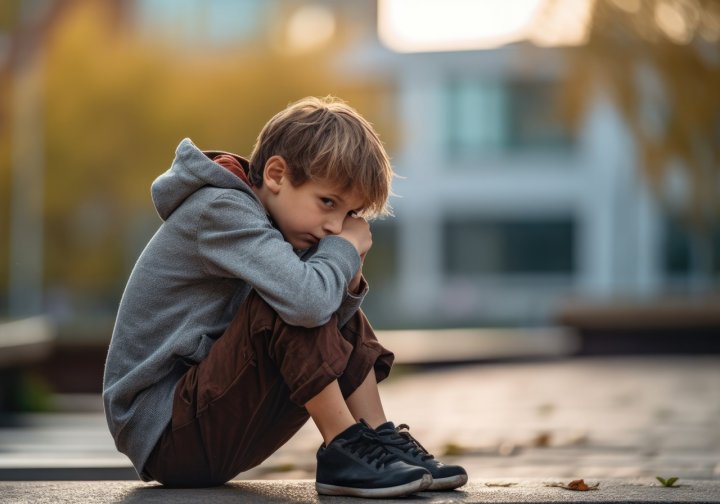Blog

Specifics of bipolar disorder in children
Bipolar disorder is a serious mental illness that is more commonly associated with adults. However, it can also occur in children, although its manifestations may differ significantly from those typical of adult patients. Early diagnosis and treatment are key to managing this disorder and improving the overall quality of life for the child and the entire family.
We will tell you how bipolar disorder manifests itself, how the diagnosis is made and what the treatment options are.
How does bipolar disorder manifest itself in children?
Bipolar disorder in children is characterized by extreme mood changes that include episodes of mania and depression. These swings can be rapid and unpredictable, often making them difficult for parents and educators to recognize.
Manifestations of the manic phase of bipolar disorder in children
During the period of mania, a child may exhibit the following symptoms:
Extreme euphoria and hyperactivity - The child may be excessively cheerful, talkative, energetic, and feel like they can do anything.
Reduced need for sleep - Sleeping only a few hours and yet full of energy during the day.
Impulsive and risky behaviour - May engage in dangerous activities and not appreciate the consequences of their actions.
Attention and concentration problems - Quickly skipping between activities, inability to complete tasks.
Irritability and aggression - If a child is opposed, he or she may react with intense anger and aggression.
Manifestations of the depressive phase of bipolar illness in children
During the depressed period, the child may exhibit:
Extreme sadness and anxiety - Frequent crying episodes, thoughts full of hopelessness.
Loss of interest in favourite activities - The child no longer enjoys the activities they used to love.
Extreme tiredness or lethargy - May feel exhausted even after getting enough sleep.
Self-blame and feelings of inferiority - Children often mention that they are "not good enough" or that they "spoil everything".
Self-harm or thoughts of suicide - In more severe cases, children may exhibit threatening behaviour that requires immediate professional help.
Why is bipolar disorder in children difficult to diagnose?
Bipolar disorder in children is often confused with other disorders such as ADHD, depression or oppositional defiance. Children's moods are naturally changeable and energy fluctuates, which can lead to underdiagnosis or overdiagnosis.
A further complication is that children may experience mixed episodes - simultaneously showing signs of mania and depression, making recognition even more difficult.
When to seek professional help?
If a child is experiencing recurrent and significant mood swings that interfere with their daily life, affect their school performance, relationships with peers or family, it is important to consult a child psychiatrist or psychologist. Early intervention can significantly improve prognosis.
Treatment of bipolar disorder in children
Treatment usually consists of a combination of psychotherapy and medication, with mood stabilizers being the mainstay of medication. Therapy helps the child and family understand how to work with the illness and provides tools to manage it. Medication, such as mood stabilisers, can help control unmanageable extreme mood swings, but should always be prescribed and monitored by a specialist.
Bipolar disorder, and of course not just in children, is a complex and serious illness that requires careful diagnosis and treatment. If you suspect that your child is struggling with any of the above mentioned difficulties, do not hesitate to seek professional help. The earlier the disease is recognized, the better its manifestations can be controlled and help your child lead a quality life.
